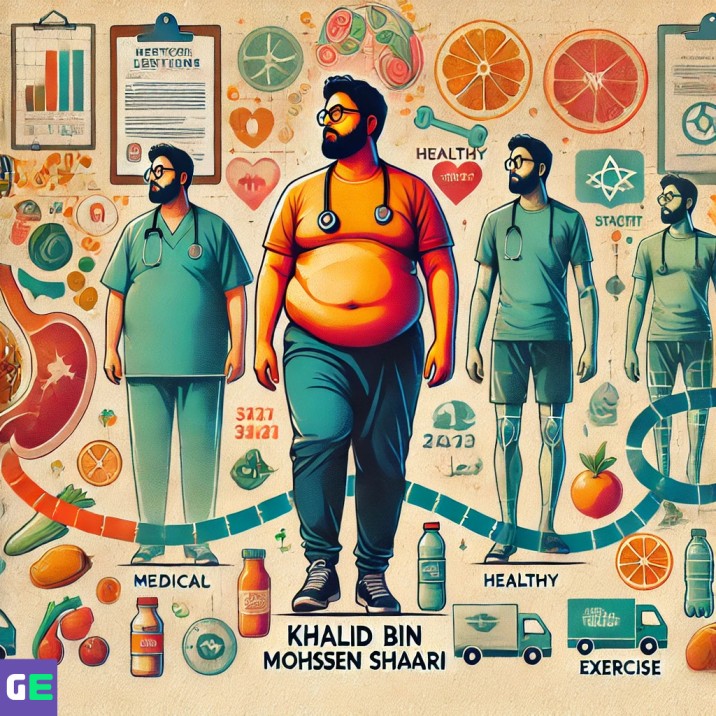Introduction
Public health is the foundation of a thriving society, ensuring that people have access to clean water, healthcare, and a safe environment. However, in 2025, the world faces new and evolving threats that put millions at risk. The Top Global Public Health Concerns not only affect developing nations but also have significant implications for the United States. From emerging infectious diseases to mental health crises and climate-related illnesses, these challenges require urgent attention and global cooperation.
In this article, we will explore the most pressing Top Global Public Health Concerns of 2025, focusing on how they impact the U.S. and what steps can be taken to mitigate them.
1. The Rise of Infectious Diseases and Pandemics
The COVID-19 pandemic demonstrated how rapidly a virus can spread across borders, overwhelming healthcare systems and disrupting economies. In 2025, the threat of emerging and re-emerging infectious diseases remains one of the Top Global Public Health Concerns.
New and Re-Emerging Infectious Diseases
Viruses such as avian influenza (H5N1), Ebola, and new COVID-19 variants continue to pose significant threats. The ease of global travel accelerates disease transmission, making containment difficult.
Impact on the United States
The U.S. must remain vigilant against imported infectious diseases. Strengthening pandemic preparedness, investing in vaccine research, and maintaining a robust public health infrastructure are critical to mitigating future outbreaks.
Solutions and Preventive Measures
- Increasing funding for vaccine development and disease surveillance
- Strengthening public health policies and emergency response strategies
- Encouraging global cooperation to track and contain disease outbreaks
2. Climate Change and Its Health Consequences
Climate change is no longer a distant threat—it is a present crisis affecting millions. Rising temperatures, extreme weather events, and pollution significantly impact public health, making climate-related illnesses one of the Top Global Public Health Concerns in 2025.
How Climate Change Affects Public Health
- Heatwaves and Respiratory Diseases: Higher temperatures contribute to heat-related illnesses and worsen air pollution, leading to increased asthma and lung disease cases.
- Vector-Borne Diseases: Warmer climates expand the habitats of disease-carrying mosquitoes and ticks, leading to more cases of malaria, dengue, and Lyme disease.
- Extreme Weather Events: Hurricanes, wildfires, and floods displace communities, leading to mental health issues, waterborne diseases, and malnutrition.
The U.S. Response to Climate-Related Health Issues
- Implementing stricter environmental regulations to reduce air pollution
- Investing in climate-resilient healthcare infrastructure
- Raising public awareness about the health impacts of climate change
3. Antimicrobial Resistance (AMR) and Superbugs
The overuse of antibiotics has led to the emergence of drug-resistant bacteria, commonly known as “superbugs.” Antimicrobial resistance (AMR) is one of the Top Global Public Health Concerns because it threatens the effectiveness of treatments for common infections.
Why AMR is a Growing Concern
- Overprescription of antibiotics in healthcare and livestock
- Lack of new antibiotics being developed
- The global spread of resistant bacteria through travel and trade
Consequences for the United States
- Increased hospitalizations and deaths due to untreatable infections
- Higher medical costs and longer recovery times for patients
- Risk of common procedures (such as surgeries and chemotherapy) becoming dangerous without effective antibiotics
Steps to Combat AMR
- Reducing unnecessary antibiotic prescriptions
- Encouraging the development of new antibiotics and alternative treatments
- Strengthening infection control measures in hospitals and communities
4. The Global Mental Health Crisis
Mental health is increasingly recognized as a major component of overall well-being, yet millions still struggle with mental health disorders. In 2025, mental health issues remain one of the Top Global Public Health Concerns, particularly in the U.S., where stress, anxiety, and depression are at all-time highs.
Causes of the Mental Health Crisis
- The lingering effects of the COVID-19 pandemic
- Economic uncertainty and job insecurity
- Social media and its impact on self-esteem and anxiety
- Lack of access to affordable mental health care
The Impact on U.S. Society
- Rising suicide rates, especially among young adults
- Increased workplace burnout and productivity loss
- Strained healthcare resources due to the growing demand for mental health services
Potential Solutions
- Expanding access to mental health services, including teletherapy
- Integrating mental health care into primary healthcare settings
- Promoting awareness and reducing the stigma around mental illness
5. The Rise of Non-Communicable Diseases (NCDs)
Non-communicable diseases (NCDs), such as heart disease, cancer, diabetes, and obesity, are among the Top Global Public Health Concerns in 2025. These diseases account for a significant portion of global deaths and place a heavy burden on healthcare systems.
Why NCDs Are Increasing
- Unhealthy diets and processed food consumption
- Sedentary lifestyles and lack of physical activity
- Increased stress and poor sleep habits
Impact on the U.S. Healthcare System
- Rising healthcare costs for managing chronic illnesses
- Increased rates of disability and reduced workforce productivity
- Greater demand for preventive health measures
Preventive Strategies
- Encouraging healthier eating habits through public policies
- Promoting physical activity and wellness programs
- Expanding access to early detection and treatment services
6. Global Health Inequality and Access to Care
Despite medical advancements, access to healthcare remains unequal worldwide. The disparity in healthcare access is one of the Top Global Public Health Concerns, affecting vulnerable populations in both developing and developed nations, including the U.S.
Barriers to Healthcare Access
- Economic disparities that prevent people from affording healthcare
- Shortages of healthcare professionals in underserved areas
- Inequitable distribution of medical resources
Addressing Healthcare Inequality in the U.S.
- Expanding healthcare coverage through policy reforms
- Increasing funding for community health programs
- Addressing racial and socioeconomic disparities in healthcare access
7. The Threat of Bioterrorism and Public Health Security
In an age of advanced biotechnology, the risk of bioterrorism has become one of the Top Global Public Health Concerns. The possibility of lab-created pathogens being used as weapons poses a significant threat to global and national security.
How Bioterrorism Affects Public Health
- Potential for widespread disease outbreaks
- Increased strain on public health systems
- Economic and social disruptions
How the U.S. is Addressing Bioterrorism Risks
- Strengthening biodefense strategies and research
- Enhancing rapid response capabilities for biological threats
- Collaborating with international organizations to prevent bioterrorism
8. Food and Water Security as a Public Health Challenge
Access to safe food and clean water is essential for health, yet food insecurity and water contamination remain major Top Global Public Health Concerns.
Causes of Food and Water Insecurity
- Climate change affecting agriculture and water supply
- Pollution and industrial waste contaminating water sources
- Supply chain disruptions leading to food shortages
Impact on the U.S.
- Increased food prices and economic instability
- Rising cases of waterborne illnesses and food poisoning
- Greater reliance on emergency food assistance programs
Solutions for Food and Water Security
- Strengthening regulations on food and water safety
- Investing in sustainable agriculture and water management
- Supporting food distribution programs for vulnerable populations
Conclusion
The Top Global Public Health Concerns of 2025 pose significant risks to societies worldwide, including the United States. Addressing these challenges requires proactive policies, scientific advancements, and individual actions. By staying informed, advocating for public health initiatives, and adopting healthier lifestyles, we can work towards a healthier future for all Read more
FAQs
H5: What are the Top Global Public Health Concerns in 2025?
The Top Global Public Health Concerns in 2025 include infectious disease outbreaks, climate change-related health issues, antimicrobial resistance, the global mental health crisis, and rising non-communicable diseases such as heart disease and diabetes. These issues affect not only developing nations but also have serious implications for the United States.
Pandemic preparedness remains a priority, especially after the COVID-19 crisis, while climate change continues to worsen respiratory illnesses and vector-borne diseases. Additionally, antimicrobial resistance threatens to make common infections untreatable, and food and water security issues are growing concerns. Addressing these challenges requires international cooperation, strong healthcare policies, and proactive measures at both governmental and individual levels.
H5: How do the Top Global Public Health Concerns affect the United States?
Many of the Top Global Public Health Concerns have a direct impact on the U.S. For example, global travel and trade increase the risk of infectious diseases spreading rapidly. Climate change-related health problems, such as heatwaves, air pollution, and the spread of vector-borne diseases like Lyme disease and West Nile virus, are affecting millions of Americans.
Additionally, the mental health crisis in the U.S. has been exacerbated by social, economic, and technological changes, while antimicrobial resistance threatens the effectiveness of life-saving medications. By addressing these concerns through policy changes, public awareness, and medical innovation, the U.S. can take a leadership role in tackling global health issues.
H5: Why is antimicrobial resistance one of the Top Global Public Health Concerns?
Antimicrobial resistance (AMR) is a growing crisis where bacteria, viruses, fungi, and parasites become resistant to medications, making infections harder to treat. This is one of the Top Global Public Health Concerns because it threatens the effectiveness of antibiotics and could lead to a future where minor infections become deadly.
In the U.S., overuse and misuse of antibiotics in both healthcare and agriculture have accelerated this problem. If AMR continues to rise, common medical procedures like surgeries and chemotherapy could become high-risk due to the potential for untreatable infections. To combat AMR, stricter regulations on antibiotic use, investment in new treatments, and increased public awareness are necessary.
H5: How is climate change impacting the Top Global Public Health Concerns?
Climate change is closely linked to several Top Global Public Health Concerns, particularly respiratory diseases, heat-related illnesses, and the spread of infectious diseases. Rising temperatures contribute to worsening air quality, increasing cases of asthma and lung disease in urban areas.
Additionally, extreme weather events such as hurricanes and wildfires lead to displacement, food shortages, and water contamination, which further strain public health systems. Vector-borne diseases like malaria and dengue are expanding into new regions due to changing climate conditions. In the U.S., climate-related health issues are becoming more prevalent, highlighting the urgent need for climate action to protect public health.
H5: How can the U.S. healthcare system address the Top Global Public Health Concerns?
The U.S. healthcare system plays a crucial role in addressing the Top Global Public Health Concerns through research, policy changes, and preventive healthcare. Strengthening public health infrastructure, improving access to healthcare, and investing in medical innovation are essential steps.
For example, increasing funding for disease surveillance can help detect emerging infectious threats early, while expanding mental health services can help address the growing mental health crisis. Additionally, promoting healthy lifestyles and preventive care can reduce the burden of non-communicable diseases like diabetes and heart disease. By taking a proactive approach, the U.S. can improve public health outcomes and contribute to global health solutions.
H5: What role does mental health play in the Top Global Public Health Concerns?
Mental health is one of the most pressing Top Global Public Health Concerns today, affecting millions of people worldwide, including in the U.S. The rise in anxiety, depression, and suicide rates has been linked to factors such as economic stress, social media influence, and the lingering effects of the COVID-19 pandemic.
Access to mental health care remains a challenge, especially in rural areas and underserved communities. To address this crisis, mental health services must be integrated into primary healthcare, stigma must be reduced, and digital health solutions such as teletherapy should be expanded. Increased funding and awareness campaigns can also help promote mental well-being on a national and global scale.
H5: How do food and water security issues relate to the Top Global Public Health Concerns?
Food and water security are critical Top Global Public Health Concerns that impact millions of people, including those in the United States. Contaminated water sources and foodborne illnesses pose serious health risks, while climate change, pollution, and geopolitical conflicts threaten food production and distribution.
In the U.S., concerns about water contamination from industrial waste, agricultural runoff, and outdated infrastructure highlight the need for stricter regulations. Addressing these issues requires sustainable agriculture practices, investment in clean water infrastructure, and stronger food safety regulations to prevent public health crises.
H5: How can individuals contribute to solving the Top Global Public Health Concerns?
While governments and organizations play a significant role in addressing the Top Global Public Health Concerns, individuals can also take meaningful action. Simple lifestyle changes, such as reducing antibiotic use, adopting a healthy diet, and practicing sustainable living, can have a positive impact.
Staying informed about global health issues, supporting policies that promote public health, and participating in community health initiatives are also important. Additionally, advocating for mental health awareness and climate-friendly practices can help create long-term solutions to pressing health concerns. By making conscious choices, individuals can contribute to a healthier future for themselves and their communities.
H5: What innovations are helping address the Top Global Public Health Concerns?
Medical and technological innovations are playing a crucial role in combating the Top Global Public Health Concerns. Advances in artificial intelligence (AI) are improving disease detection, while telemedicine is making healthcare more accessible.
Other breakthroughs, such as mRNA vaccine technology and new antimicrobial treatments, are helping prevent and manage infectious diseases. Wearable health devices and predictive analytics are also empowering individuals to monitor their health in real time. These innovations are shaping the future of healthcare and providing new solutions to global health challenges.
H5: Why is global collaboration essential for addressing the Top Global Public Health Concerns?
Global health challenges require collective action from nations, organizations, and individuals. Many of the Top Global Public Health Concerns, such as pandemics, antimicrobial resistance, and climate change, do not respect national borders and require a coordinated international response.
The U.S. plays a key role in global health by funding research, supporting international health organizations, and collaborating on vaccine development. Strengthening global health systems and investing in preventative measures will not only benefit the U.S. but also contribute to a healthier and more stable world. By working together, countries can build a stronger, more resilient public health infrastructure.
Final Thoughts
Addressing the Top Global Public Health Concerns is a shared responsibility that requires action from governments, healthcare providers, and individuals. The challenges of 2025 demand innovative solutions, strong policies, and global cooperation. By staying informed and making proactive health choices, we can contribute to a safer and healthier future for all













Leave a Reply